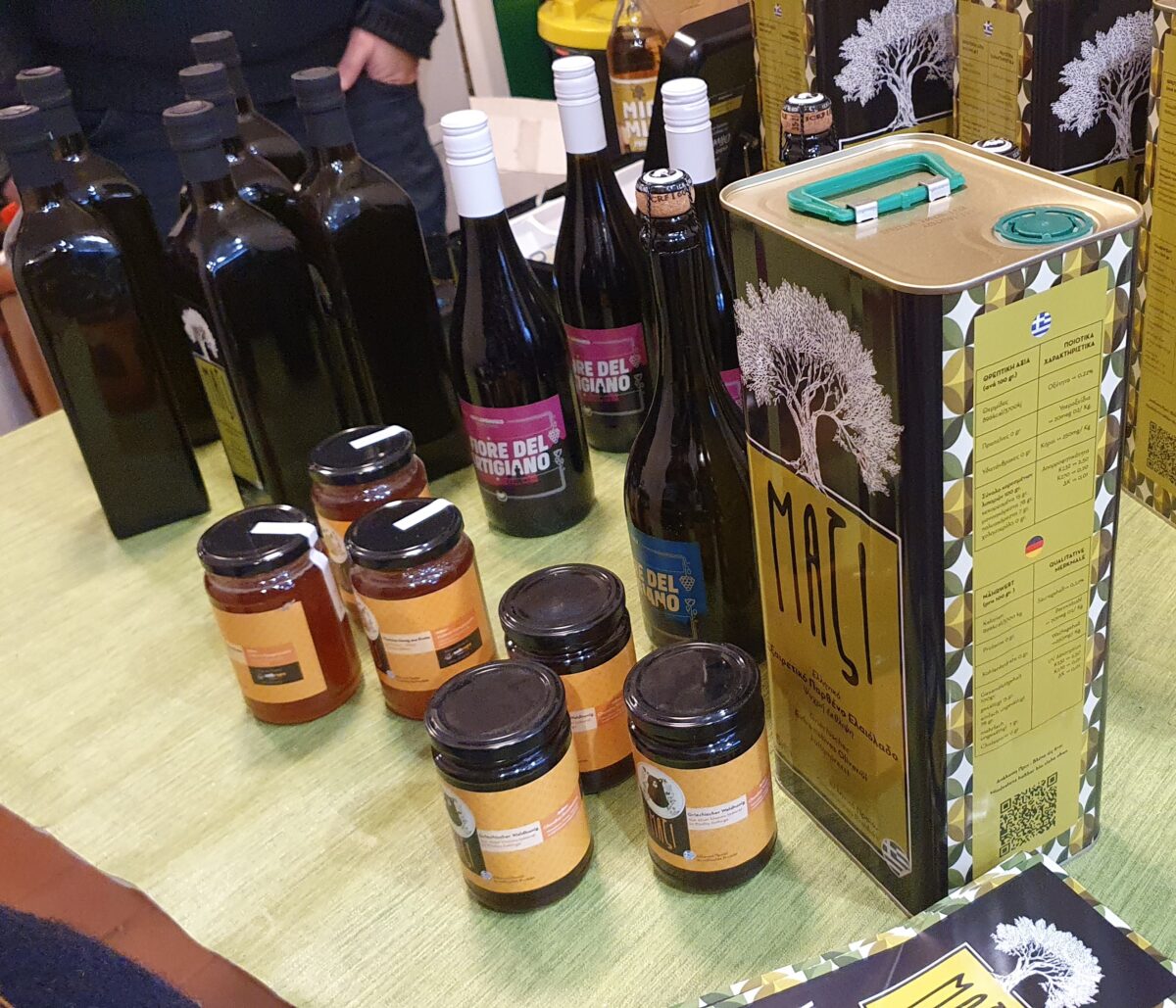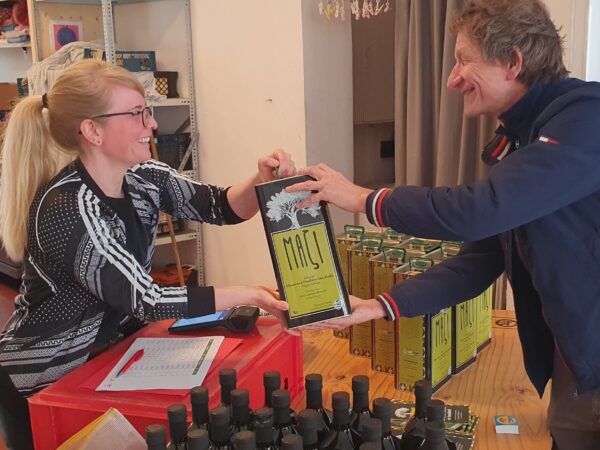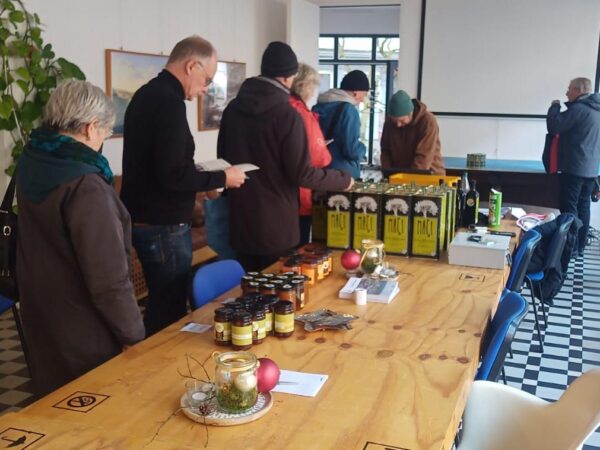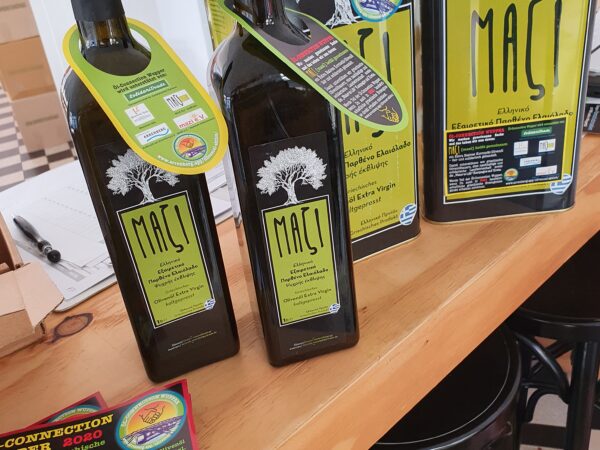Öl-Connection Wupper - 5. January 2023
Erfolg für Öl-Connection – 707€ Spende für Geflüchteten-Projekt
707€ gehen an Naomi, ein Projekt für Geflüchtete in Thessaloniki (Griechenland).
Auch im Jahr 2023 werden wir wieder gemeinschaftlich Oliven-Öl bestellen. Die nächste Aktion startet voraussichtlich im April und verteilt wird das Öl am 13. Mai, parallel zum Restaurant Day.


































